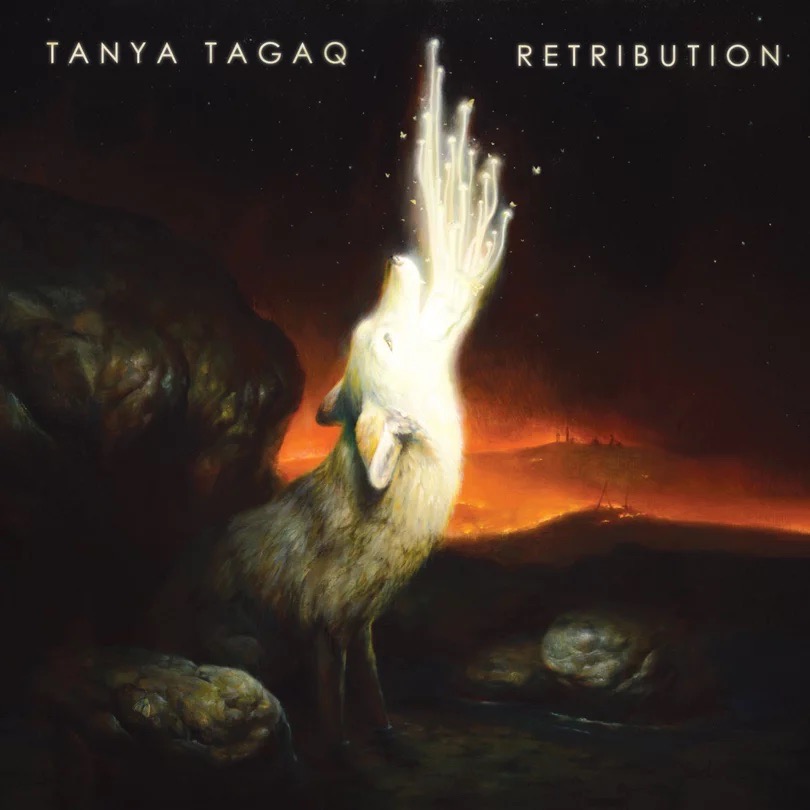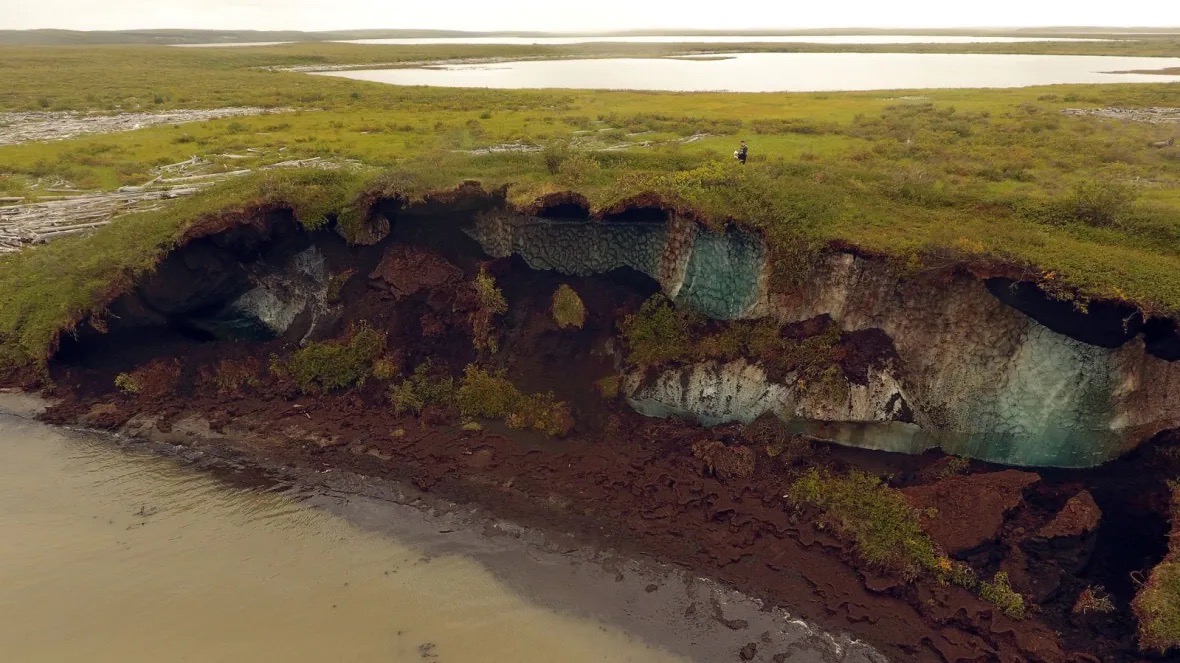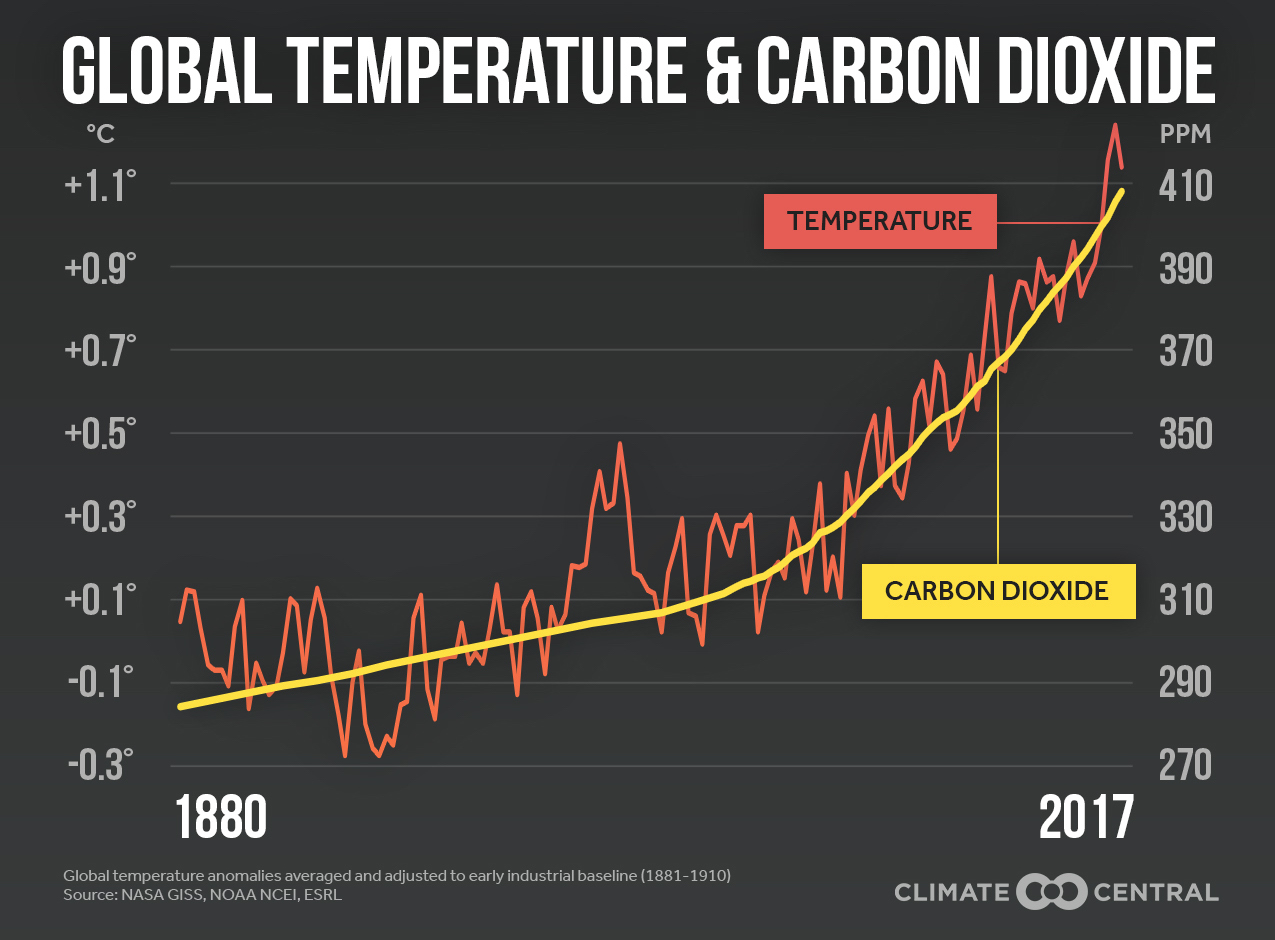Content warning: This album contains content pertaining to sexual assault and violence that may not be fit for certain audiences.

The album cover for Retribution by Tanya Tagaq, an Indigenous Canadian artist and vocalist (from Presley, 2016). Retribution is Tagaq’s fourth full-length album, released in 2016.
- Retribution (image above) is an album released in October 2016 by Indigenous Canadian artist Tanya Tagaq. This album transcends genre and its raw vocals evoke powerful emotions. The album is an uncensored and aggressive artistic statement advocating for Indigenous rights in a world of crisis.
- This album contains a mix of English lyrics and traditional Inuk throat singing (katajjaq). Tagaq is an acclaimed Inuk throat singer who has brought the art to global audiences.
- You can listen to the album here and read the lyrics here.
How is this related to climate?
- Retribution paints a violent world threatened by the colonial destruction of the planet. It is a candid critique of Western capitalism and its exploitation of Indigenous peoples and land. Through her music, Tagaq expresses her pain and rage, protesting the climate crisis caused by colonial powers.
- In Retribution, Tagaq speaks for the Inuit people, whose lives and land are being directly impacted by anthropogenic climate change. The Inuit people are a group of Indigenous people who reside in the Arctic regions of Greenland, Canada, and Alaska. This area is experiencing some of the most dramatic environmental changes, as temperatures are rising at the fastest rate in the world.
- Inuit peoples have to contend with coastal erosion, reduced sea ice, thawing permafrost (image below), melt runoff, and unpredictable glacial melt. This is destroying local infrastructure, disrupting hunting practices, and threatening reliable drinking water. Melting glaciers are also exposing more dry land, compelling governments, scientists, and corporations to the Arctic to explore and extract various natural resources. These activities can disturb Indigenous communities and show disrespect for the land.
- These conditions are only expected to worsen with the continued patterns of carbon emissions. A 2023 study predicts that if emissions aren’t immediately reduced, the Arctic may not be able to sustain summer ice as soon as the 2030s.

Photograph of thawing permafrost in Northern Canada along the coast of the Mackenzie Delta. Permafrost is frozen soil, which can be found in the Arctic (from the Canadian Press, 2019).
- “Retribution,” is the album’s second track and shares its name. It begins with a moving spoken word excerpt, narrated by Tagaq. She sings, “Our mother grows angry, retribution will be swift. We squander her soil and suck out her sweet black blood to burn it.” In this line, Tagaq personifies Mother Nature and criticizes industrial nations’ exploitation of fossil fuels.
- The addition of carbon emissions into the atmosphere from burning fossil fuels, which amplifies the greenhouse effect, is the primary cause of anthropogenic climate change and rising global temperatures. Since pre-industrial times, the amount of atmospheric carbon has almost doubled. Global temperatures have also increased by over 1°C (graph below).

Graph of global temperature and atmospheric carbon dioxide from preindustrial times to 2017. Since 2017, carbon dioxide levels have continued to increase, and temperatures are expected to continue to rise (from Freiman, 2021).
- “Cold” is the seventh track of Retribution. In this song, Tagaq stresses the consequences of global warming and melting ice. Tagaq explains the process of melting ice. She points out that it takes over eighty times more heat energy to melt ice than it does to raise the temperature of water by 1°C (graph below). She monologues, “Once all the ice is melted, the once-covered ice area will heat up eighty-one times faster. There will be no stopping it.”

Diagram of the thermal properties of water demonstrating how much energy, in calories, is needed to raise the temperature of water, in degrees Celsius (from Thurman and Trujillo, 2004). The diagonal lines show the energy needed to heat water as a solid (blue), liquid (purple), or gas (red). The horizontal lines indicate latent heat, or heat needed to change the physical state of water, either from solid to liquid (melting) or from liquid to gas (vaporizing). Notice that it requires 80 calories of heat energy to melt ice into 1 gram of water (labeled a to b), but it takes only 1 calorie to increase the temperature of liquid water by 1°C (or 1.8°F; b to c trend on the graph).
Further exploration
- In spite of the rapidly changing Arctic environment, as well as government and corporate land exploitation, Inuit people have exemplified climate resilience and adaptation. For example, community leaders in Taloyoak, the northernmost town on the North American continent, have worked with Canadian officials to establish an Inuit Protected and Conserved Area (IPCA) that would legally protect over 100,000 square kilometers (40,000 square miles) of land, ocean, and freshwater. Under the IPCA, Inuit people will be in charge of managing the land. Taloyoak leaders are working to protect the land from mining and oil industries, instead supporting sustainable long-term Inuit jobs.
References and additional resources
- Baranuik. C. “The Inuit are famous for their ability to survive extreme conditions, having inhabited the Arctic for millennia. But as the ice recedes, this hard-earned knowledge is being lost.” BBC Future. October 2021. https://www.bbc.com/future/article/20211011-the-inuit-knowledge-vanishing-with-the-ice.
- Freiman, J. “Carbon dioxide levels are higher than they’ve been at any point in the last 3.6 million years.” CBS News. April 2020. https://www.cbsnews.com/news/climate-change-carbon-dioxide-highest-level-million-years/.
- Pettit, H. “Melting Arctic permafrost contains 4 times the amount of carbon emitted by humans.” New York Post. February 2021. https://nypost.com/2021/02/11/melting-arctic-permafrost-contains-4-times-the-amount-of-carbon-emitted-by-humans/.
- Presley, K. “Review: Tanya Tagaq, ‘Retribution.’” NPR Music. October 2016. https://www.npr.org/2016/10/13/497569725/first-listen-tanya-tagaq-retribution.
- Ramirez, R. “The Arctic may be sea ice-free in summer by the 2030s, new study warns.” CNN. June 2023. https://www.cnn.com/2023/06/06/world/arctic-sea-ice-free-climate-change/index.html.
- “Retribution – Tanya Tagaq.” Genius. 2016. https://genius.com/albums/Tanya-tagaq/Retribution.
- “Retribution by Tanya Tagaq.” Bandcamp. 2016. https://tanyatagaq.bandcamp.com/album/retribution.
- “Retribution.” Youtube. 2023. https://www.youtube.com/playlist?list=OLAK5uy_kZyv9jEUEYvTgbT_ZS_nRamJH4iRpM31Q.
- The Canadian Press. “Permafrost is thawing in the Arctic so fast that scientists are losing their equipment.” Canadian Broadcasting Corporation. May 2019. https://www.cbc.ca/news/science/permafrost-melting-1.5119767.
- Thurman, H. V. and Trujillo, A. P. Introductory Oceanography. Pearson Prentice Hall. 2004.
- Watt-Cloutier, S. “It’s time to listen to the Inuit on climate change.” Canadian Geographic. November 2018. https://canadiangeographic.ca/articles/its-time-to-listen-to-the-inuit-on-climate-change/.
- WWF Global Arctic Programme. “Working to Protect Aviqtuuq for Future Generations.” World Wildlife Fund. n.d. https://www.arcticwwf.org/the-circle/stories/working-to-protect-aviqtuuq-for-future-generations/.
